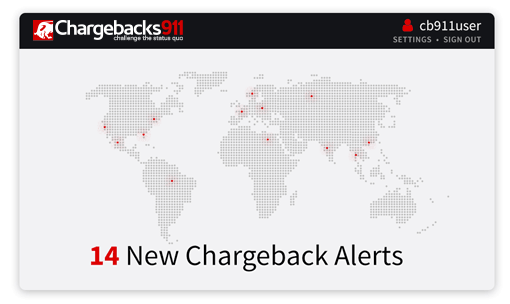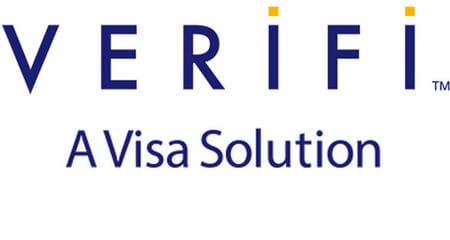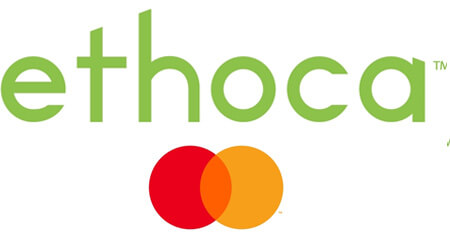Chargeback Alerts: Your Best Defense Against Chargebacks
It’s easy to feel overwhelmed by chargebacks.
Global chargeback volume reached 615 million cases last year. They cost merchants nearly $118 billion every year as of 2023. That sounds like trouble, no matter where you’re standing.
So, what can you do to counteract this rising problem? By investing in chargeback alerts, you can avoid many chargebacks that might otherwise have sapped your revenue and jeopardized your business.
In this article, we’ll explain what chargeback alerts are and how they work. We’ll also delve into why you may need them and who can help you with this service.
Recommended reading
- Chargeback Insurance: Choose the Best Protection in 2025
- The Top 30 Chargeback Risk Factors to Eliminate in 2025
- Prevent Chargebacks With Consumer Clarity
- Can You Make a “No Chargeback Agreement” With Buyers?
- Examining AI’s Historic Role in Fighting ‘Friendly Fraud’
- What is a Business Continuity Plan? Tips, Guides & Examples
What Are Chargeback Alerts?
- Chargeback Alerts
Chargeback alerts are a dispute prevention product provided by a chargeback management specialist. Alerts providers work closely with banks to ensure that merchants using the service receive advance notice of impending chargebacks. This lets the merchant resolve the issue before a chargeback happens.
[noun]/charj • bak • ǝ • lǝrt/
Chargeback alerts differ from chargeback notifications by virtue of their delivery system. A chargeback notification letter will be provided to a merchant as notice that a chargeback has already been filed against them. In this way, merchants are only allowed to fight back through representment, which is a costly and time-consuming process.
On the other hand, a chargeback alert is an advance communication between issuers and a third-party dispute manager. The alert informs the merchant that a chargeback is pending but has not yet been filed. In this case, the merchant is allowed to refund the disputed transaction between 24-72 hours, avoiding the chargeback altogether.
How Do Chargeback Alerts Work?
Chargeback alerts are offered by third-party service providers with access to real-time dispute data. These vendors serve as intermediaries between issuers and merchants, and can notify merchants about impending cardholder disputes.
Chargeback alert services work by integrating transaction data with your active account management systems. This lets the service provider monitor and respond to incoming disputes in real-time. The technology associated with the alert service is only available to providers who are certified by the payments industry and maintain a good working relationship with banks and processors.
When the chargeback alert is presented, you have time to decide whether you want to offer a refund or challenge the transaction through representment. Without chargeback alerts, merchants are allotted only the decision to accept the chargeback or fight against it.
The chargeback alert process works as follows:
- Customer Disputes a Transaction: For whatever reason, a customer has contacted their bank to dispute a transaction that appeared on their billing statement.
- Issuer Alerts Provider: The bank notifies the service provider through their alert network about the incoming chargeback.
- Provider Alerts Merchant: The service provider notifies the merchant of the incoming chargeback. The merchant can then decide whether to refund the customer, stop order fulfillment, update order information, or challenge the disputed transaction.
- Merchant Refunds Buyer: Assuming the merchant wants to avoid a chargeback, they refund the purchase and/or stop order fulfillment.
- Provider Notifies Issuing Bank: The provider, or the provider’s alert network, then notifies the bank that the dispute has been resolved. This quick action prevented the chargeback and any resulting fees, saving time and money for everyone involved.
5 Immediate Benefits of Chargeback Alerts
Chargeback alert providers charge for each alert issued. Given that the cost of an alert is roughly on par with the chargeback fees charged by acquirers per chargeback received, that raises the question: why bother with setting up alerts at all?
The answer is that the chargeback fee is just one small part of a dispute’s overall cost. Every time a cardholder files a chargeback, you stand to lose revenue, merchandise, time, goodwill, and more. By signing up for alerts and avoiding chargebacks, you can enjoy:
No doubt about it: chargeback alerts save you time and money that you’d otherwise spend embroiled in the chargeback process.
We outlined four immediate benefits of chargeback alerts above. Here’s another bonus benefit: how happy customers will be to have their issues addressed and resolved promptly. Proactive measures like these can go a long way to improving your customer experience and your retention and conversion rates.
What Chargeback Alert Products are Available on the Market?
TL;DRThe two primary alert products currently on the market are Verifi CDRN and Ethoca Alerts.
Two of the most recognizable products in terms of chargeback alerts are Verifi's Chargeback Dispute Resolution Network (CDRN) and Ethoca Alerts. Each of these services offers its own proprietary network to intercept disputes before they become chargebacks.
Working with one of these two service providers will allow you to try and resolve the dispute on your own. You can issue a refund to the buyer or provide additional transaction details to resolve the cardholder’s complaint. This lets you avoid costly fees, fines, and penalties and protect your relationship with your bank.
Verifi CDRN Ethoca Alerts Area of Specialization Non-fraudulent consumer chargebacks Fraud-related chargebacks Length of Time to Respond Before an Alert Becomes a Chargeback Up to 72 hours Within 24 hours Global Issuer Coverage Less comprehensive More comprehensive Best Option if... - you are primarily concerned with non-fraud disputes
- you want a longer time window to respond to alerts
- you sell primarily to consumers based in the United States- you seek protection against -related chargebacks
- you have an international customer baseIMPORTANT!You don’t have to choose one or the other. If you tend to see both fraud and non-fraud chargebacks, are operating in a high-risk vertical, or simply want the most comprehensive protection possible, it’s recommended that you enroll in alerts from both Verifi and Ethoca.
Augment Chargeback Alerts With Network Inquiries
Network inquiries are similar to chargeback alerts. They let you intercept disputes before a chargeback is filed and are widely available to merchants through the card network.
Issuers participating in a network inquiry program can request additional information about the transaction. This lets you automatically resolve some disputes before they happen. Both Visa and Mastercard offer proprietary inquiry products through Verifi and Ethoca:
Finally, we also want to touch on Rapid Dispute Resolution (RDR), another product from Verifi that can help you automate the chargeback prevention process.
How to Tell if You Need Chargeback Alerts
TL;DRIf your chargeback ratio is near the high-risk threshold, you should strongly consider signing up for chargeback alerts.
Let’s discuss chargeback costs as they relate to a high chargeback threshold.
If a merchant’s chargeback ratio exceeds 100 chargebacks per month, they will be labeled as a ‘high-risk’ merchant. This status carries a penalty of up to $50 per chargeback, limitations on business practices, and costly recurring fees.
If your business exceeds more than 50 or more chargebacks every month, you simply cannot afford to forego a chargeback alert system. The situation grows more tenuous when you realize most of those chargebacks were likely the result of friendly fraud. According to our research, friendly fraud represents six out of every ten chargebacks filed in North America.
Friendly fraud is challenging for merchants because it’s tough to diagnose. It often represents a ‘gray area’ for disputes that issuing banks are slow to investigate.
If that seems unfair to merchants…that’s because it is.
The fact that the chargeback process is inherently flawed is lost on no one, least of all the banks in question. This is the major reason banks cooperate with chargeback alert programs in the first place. Nowadays, if you want to keep your chargeback ratio within reasonable standards and limit your losses to chargebacks, the best option you have is to invest in your own protection.
Can I Self-Manage My Chargeback Alerts?
Of course, you can…but it won’t be easy.
You can conduct all your chargeback management operations internally if you have the staff, finances, and time to do so. Combining best practices with advanced fraud tools can detect and prevent many fraudulent transactions and even lower the number of chargebacks you receive tied to merchant error. Often, you can even detect and fight back against friendly fraud by having the staff and time to devote to notifications and representment preparation.
Both Visa and Mastercard offer network alerts through Verifi CDRN and Ethoca Alerts. Through their portals, you can identify and resolve incoming disputes independently. However, neither option is universal. You will need to pay for accounts on both platforms. Also, neither service sufficiently addresses the threat of friendly fraud.
While processors and card networks can undoubtedly help you answer disputes within their network, they cannot extend that protection across the board. What works for Mastercard may not help with Visa disputes. They also can’t help you fight back against the chargebacks that will inevitably slip through, regardless of their efforts.
Why Work With a Professional?
The most cost-effective option is usually to work with a chargeback specialist. These professionals can respond to incoming disputes no matter their network and have the tools and expertise to make the process as quick and painless as possible.
When you hire a chargeback management company, you are paying for experts to help you with a serious problem. You’re hiring a company with a proven track record in the chargebacks and payments industry. And, you're hiring a company with specialized authorization to work within both Visa (Verifi) and Mastercard alert networks, giving you the benefit of both networks at one price point.

Hiring a chargeback management company ensures you have a dedicated team on your side to help you prevent chargebacks whenever possible and fight back against chargebacks you can’t prevent. They can help you diagnose chargeback trigger points in your systems and practices, respond to chargeback alerts and notifications on time, and even help you prepare and send your representment packages to the correct parties.
Finally, a good chargeback management company will guarantee success. The most reputable companies will offer a 100% return-on-investment guarantee for their services.
Only one brand delivers on these promises: the original name in chargeback management.
Get Chargeback Alerts & Focus On Your Business
Getting the broadest chargeback coverage possible is easy with Chargebacks911®.
The Enriched Chargeback Alerts model combines our proprietary, exclusive chargeback detection network with those of other third-party providers. This lets us offer the most comprehensive chargeback alert coverage available on the market, all accessible from the same easy-to-use client dashboard.
No other service provider can offer this level of protection:
- Learn of potential chargebacks before they happen
- Absolute broadest alert coverage available
- Stop chargebacks with immediate response or refund
- Seamless Fast Track integration: alerts within 24 hours
- Visa-authorized VMPI facilitators
- Stop inquiries from becoming chargebacks in real-time
- Guaranteed results
Enriched Chargeback Alerts from Chargebacks911 let you preempt pending chargebacks by canceling future billing or refunding the customer. No other vendor can offer that level of protection against chargebacks.
Ready to discover the Chargebacks911 difference? Click “request a demo” below and learn more today.
FAQs
What are chargeback alerts?
Offered by companies like Verifi and Ethoca, chargeback alerts are services that notify merchants about impending chargebacks. Once an alert is received, merchants typically have up to 72 hours to deescalate the situation before the chargeback becomes official.
What is a chargeback notice?
A chargeback notice, or a chargeback alert, is a service that warns merchants about imminent chargebacks. Upon being alerted, merchants can take immediate action to prevent the chargeback from occurring.
Do merchants get notified of a chargeback?
By default, an acquirer will notify a merchant that they have received a chargeback after it has been filed. Merchants who wish to receive notification about chargebacks before they are filed must sign up for supplemental chargeback alert services from providers like Verifi or Ethoca.
Why would someone do a chargeback?
Cardholders file chargebacks for a variety of valid and invalid reasons. Valid reasons include being a victim of third-party fraud or the recipient of damaged, defective, or missing goods. However, as many as three-quarters of all chargebacks are filed for invalid reasons, including buyer’s remorse, family fraud, or a desire to get a “double refund” or a free item.
What happens if you accept a chargeback?
If a merchant accepts a chargeback, the dispute resolves in favor of the cardholder. Funds are withdrawn from the merchant’s account at the acquirer and returned to the cardholder’s account at the issuer. The merchant also loses out on merchandise and is assessed a chargeback fee by their acquiring bank.
How do you detect chargebacks?
Merchants can detect chargebacks by signing up for chargeback alert services from companies like Verifi or Ethoca. These services warn merchants about impending chargebacks up to 72 hours before they are officially filed.


















